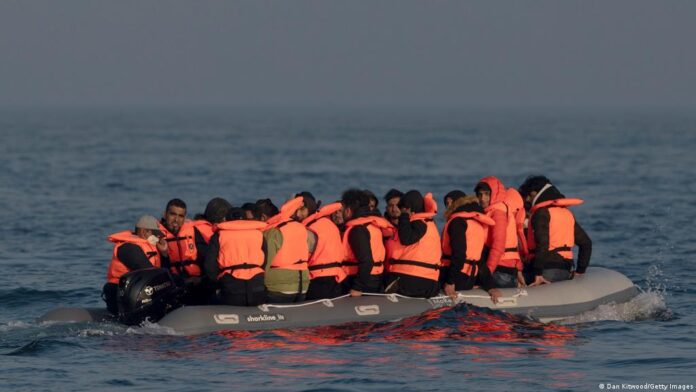The Government’s attempts to find a silver bullet solution to stop channel crossings are unlikely to stop thousands more people making the life-threatening journey this year, the Home Affairs Committee has warned.
In a report published today, the Committee finds that the asylum agreement with Rwanda so far shows no evidence of being the deterrent it is intended to be. It calls on the Government to fix the broken asylum system that continues to struggle to cope with the backlog in cases despite their being little growth in the overall numbers making claims.
Crossings in small boats continue to rise significantly. 28,5000 people arrived in the UK in 2021 and 14,000 have come so far in 2022, with the total expected to be 60,000 by the end of the year. The 20-mile journey is across the world’s busiest shipping lane and hazardous in the small craft commonly used. At least 166 people have died or gone missing attempting the crossing, including 27 in a single day.
The report finds that efforts by the Government to find a single, low-cost, solution to close off this route of entry are unrealistic and will not succeed. Threats of being put on a flight to Rwanda with no chance of return to the UK have so far failed to stop people making the extremely dangerous journey across the Channel. Their motivations, and their understanding of what will happen when they arrive in the UK, are also poorly understood and insufficient to inform good policy.
An effective deterrent would need to prevent small boats from ever leaving France. Those with a valid asylum claim should not need to risk their lives to get to the UK. While individual schemes have been set up in response to international crises supporting resettlement to the UK, most asylum applications have to be made after arrival in the UK. Safe and legal routes need to be established to support those with an asylum claim in coming to the UK without the need to use criminal gangs to get there. The Government should also explore setting up UK asylum processing facilities in France, with the agreement of the French Government, so that claims can be assessed there.
The aim should be to have an asylum system that is fair and efficient. This will require policy based on detailed evidence, fully costed, fully tested, and recognising that change will be incremental. The UK also needs to do more to work with European partners, sharing intelligence and equipment, and working together to clamp down on criminal gangs that drive people smuggling.
Since leaving the EU’s Dublin Regulation arrangements the UK has found it difficult to return Channel crossing migrants to safe countries they have travelled through and could have claimed asylum. Attempts to deliver bilateral agreements have so far failed and the Committee calls on the Government to focus on achieving a co-operative arrangement with the EU if it is to achieve its goal.
The Government should reveal the detailed costings for its Migration and Economic Development Partnership with Rwanda, including the costs for relocation. If part of its reasoning is that it will reduce the £1.5 billion current cost of the asylum system, it needs to prove that is the case.
The Committee is particularly concerned that the Government is outsourcing its responsibility for ensuring the mental and physical safety of those seeking asylum to another country, at some cost to its international responsibilities and its reputation. It must recognise that their responsibility does not end once it has put asylum applicants on a plane and provide assurances that it will actively monitor the housing, health and education of all those transferred.
Publishing the report, Chair of the Home Affairs Committee Dame Diana Johnson said:
“It is clear that the asylum system is broken, but it is not those making Channel crossings who broke it. Policy development in this area has moved away from evidence-based, tested and cost-effective solutions reacting to the changing demands placed on it. Instead, we have a search for radical new policies that might make good headlines but do little to stem the flow of people prepared to put their lives at risk to reach the UK by any means necessary.
The failure to ensure safe routes are available to all those who would have a rightful asylum claim leaves people little choice but to use drastic measures to get here. Despite much sabre rattling that people should claim asylum in the first safe country they arrive in, the Government has made slow progress in setting up deals with international partners to facilitate returns. Its deterrent policy of sending asylum applicants to Rwanda appears to have gone unnoticed by those who attempt to cross the Channel.
The UK needs an asylum system that deals with reality. It must be fair, efficient and acknowledge the UK’s international obligations. It should work to remove obstacles for those likely to have a valid claim to come to the UK, whilst working with international partners to combat the criminal gangs facilitating illegal entry. Meeting this challenge will require careful planning and detailed understanding of the problems it seeks to solve. There is no quick-fix solution.”







